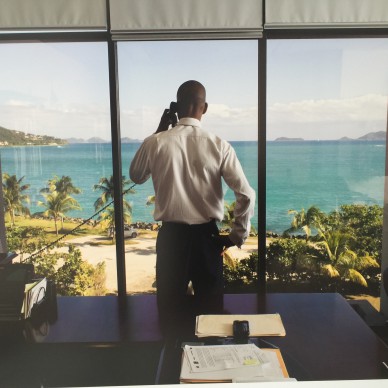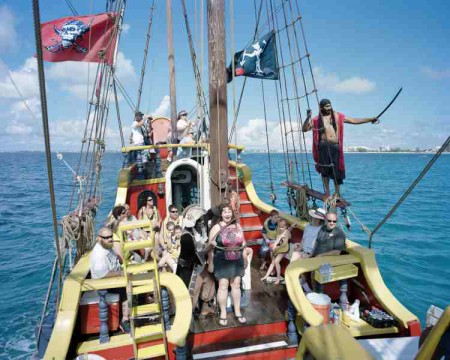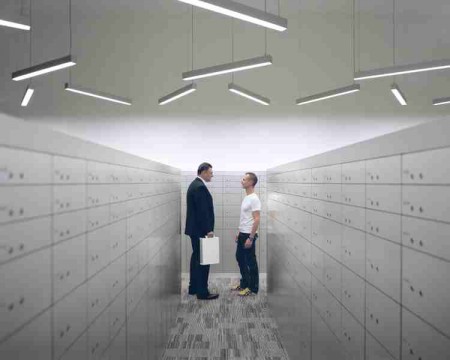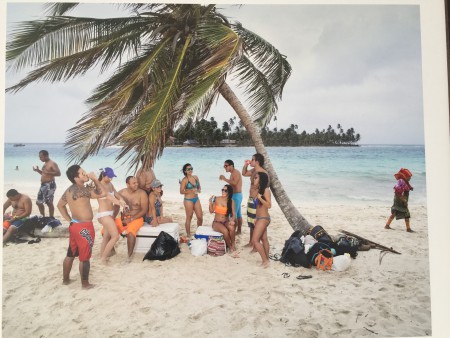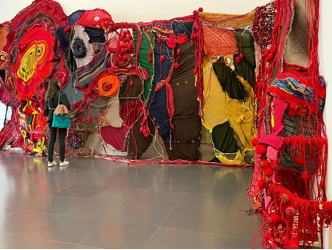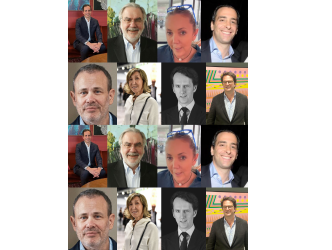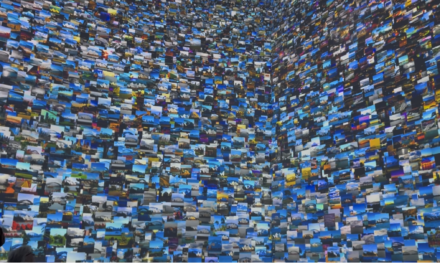‘Each time you talk to your friends on Facebook, each time you buy a book on Amazon, each time you save for your pension fund, you’re dealing with a company practicing tax optimisation. We’re not talking drug trafficking. It frequently turns out that these operations aren’t illegal, although they can produce some startling results, as for example in Great Britain last year when Facebook paid around £3,000 in tax.’
These are the words of photographer Paolo Woods. For three years he collaborated with Gabriele Galimberti – both live in Florence – to put a spotlight on a system known in France, Italy and Spain as fiscal paradises, and in the Anglo-Saxon world as tax havens. The resulting book, which they have only just brought out, leads with a pun: it’s called Paradise, or The Heavens in the English version (Dewi Lewis publisher).
To coincide with the release, in the all-new Delpire Editions gallery, just behind the Church of Saint Germain des Près, 13 rue de l’Abbaye in Paris, they’re showing a selection of images that neatly sum up their adventure.
Encompassing thirteen countries and 80 individuals or subjects, it reveals how today’s global economy is partly structured by these sophisticated tax arrangements available to large companies and high-net-worth individuals. From the Cayman Islands to Singapore, with an obligatory stop in Panama, it’s an epic journey on the trail of money that wishes to remain secret. The two men also confirm that they have collaborated with the consortium of journalists who teamed up (ICIJ), notably on the Panama Papers.
They explain:
But the biggest surprise about this colossal project is the fact that the photographs themselves are good. Ordinarily this style of political reporting is a thankless genre. The images here are effective, but also offer a sophisticated visual language. As Paolo Woods explains: ‘We didn’t want to create caricatures. We wanted to use a language of advertising, marketing, the luxury industry and to introduce an element of distortion.’ He points out, as an example, a scene showing young people enjoying themselves on the beach in a Panama Island, and in the far corner is a woman in traditional dress. She ‘s from the local Kuna ethnie. He says, ‘She’s the element of distortion.’
It was at Arles, during the photography festival last summer, that the series was shown for the first time. Each image comes accompanied by an in-depth text on the economic activity of the protagonists or of the place. ‘Each text was closely checked by lawyers,’ they say.
To obtain meetings that would lead to those final shots with for exemple with the lawyer in Panama specialising in tax evasion, with the employees of Singapore Freeport, the minister of finance of the Virgin Islands which is surprisingly the second largest investor in China, or Adrian Cheng, the young heir of a consortium in Hong Kong with multiple offshoots also known as a sponsor in the art world from Centre Pompidou to ICA in London, it required some background work: ‘Obviously we didn’t say we were doing a report on tax optimisation. Nevertheless we told the truth: that we were covering the offshore industry of the country.’
When I ask them if there is a moral to be found in their work, the two photographers reply diplomatically, and as if to avoid any potential trap: ‘Our work is not moral in the sense that we wish divide the world into good and bad. We didn’t want to create caricatures.’
Evidently, given the scope of their project, one can’t help wonder how they financed it. They reply that the initial images were self-financed and then they pre-sold the shots to newspapers across the planet. Since the project’s release, they have been sold twenty times, according to the pair. They explain:
Among the newspapers who purchased the images are The Financial Times, The Guardian, Time and Sole 24 Ore.
They’re also currently selling their photographs in a limited run of 10 prints, starting at 2,500 euros for a small format. Woods and Galimberti tell how the first buyer was fittingly someone working in tax avoidance. But they wouldn’t disclose who it was. One suspects he thought it was a good investment.
www.theheavensllc.com
Support independent news on art.
Your contribution : Make a monthly commitment to support JB Reports or a one off contribution as and when you feel like it. Choose the option that suits you best.
Need to cancel a recurring donation? Please go here.
The donation is considered to be a subscription for a fee set by the donor and for a duration also set by the donor.

